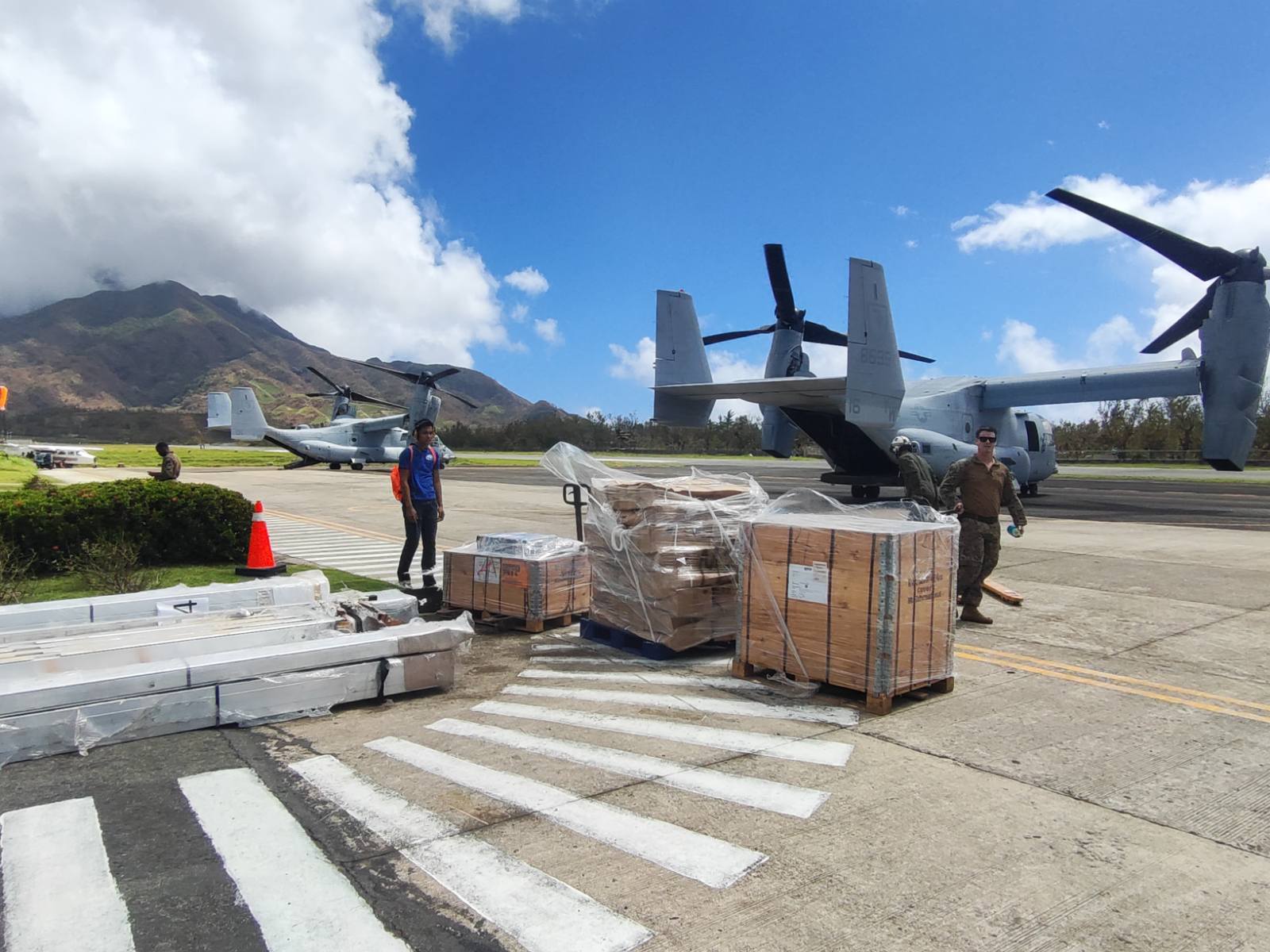
The Armed Forces of the Philippines (AFP) underscored the critical role of the Enhanced Defense Cooperation Agreement (EDCA) sites in disaster response, as evidenced by the joint relief operations of the military with counterparts from the United States in typhoon-hit Batanes.
Col. Xerxes Trinidad, chief of AFP public affairs office, said that the EDCA sites improve the capability of the military to respond swiftly by providing strategic access to facilities and resources in times of calamities.
“This close cooperation enables rapid deployment of personnel and relief aid, ensuring timely response to communities in need, such as those affected by Typhoon Julian in Batanes,” he said.
On Tuesday, Oct. 8, the AFP delivered much-needed relief supplies to communities that were ravaged by Super Typhoon “Julian” in Batanes. The operation was deemed successful in coordination with US military forces.
Two US Marine Corps MV-22 Osprey aircraft transported Foreign Disaster Relief (FDR) supplies, provided by the US Agency for International Development (USAID), from Laoag Airport to Batanes in the morning.
Additionally, a US Air Force Dornier 328 aircraft delivered further relief items from Manila to the island.
Over the weekend, the Philippine Air Force (PAF) also deployed a C-130 aircraft from Villamor Air Base in Pasay City, to deliver vital goods directly to Batanes.
Two of the nine EDCA sites in the country are located in Cagayan in the northern Luzon, close to Batanes. The sites were built based on the 2014 EDCA, an agreement which allows US to rotate its troops into the Philippines and establish facilities for trainings and disaster response.
Before the delivery of supplies, Trinidad said that the Joint US Military Assistance Group (JUSMAG), in collaboration with USAID, coordinated closely with the AFP, the local government of Batanes, and the Provincial Disaster Risk Reduction and Management Office (PDRRMO) to ensure efficient logistics and prompt arrival of assistance to the hardest-hit areas.
“The close cooperation in these relief efforts highlights the enduring strength of the US-Philippines alliance and reinforces the importance of preparedness, coordination, and the robust disaster response framework that both nations have built,” he noted.